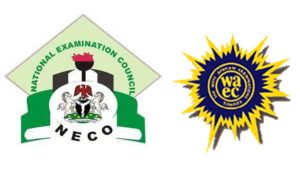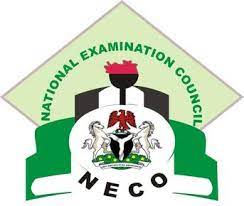Is NECO Harder Than WAEC? (Answer Revealed)
Is NECO harder than WAEC? It’s hard to say which is harder between WAEC and NECO.
If you are in SS2 or SS3, one question that’s probably on your mind right now is which is harder between WAEC and NECO or which is better between WAEC and NECO.
Well, in terms of difficulty, it’s hard to determine which is harder between WAEC and NECO.
While some students say that NECO is harder, others claim that WAEC is harder.
Nonetheless, it is important to note that how hard WAEC or NECO can be depends on how well you prepare.
If you prepare well, you may likely find the exams easier but if you fail to prepare well, you may likely find the exams extremely hard.
However, in this article, we shall compare WAEC and NECO and determine which is harder between the two prestigious exams.
Ready? Let’s go!
Also Read: Is JAMB Harder Than WAEC? (Answer Revealed)
Overview of WAEC and NECO

WAEC and NECO are two important examination bodies in West Africa, specifically Nigeria.
They are responsible for assessing the academic performance of secondary school students.
WAEC, which stands for the West African Examinations Council, has been around since 1952.
It conducts the West African Senior School Certificate Examination (WASSCE) for students in English-speaking West African countries like Nigeria, Ghana, Sierra Leone, Liberia, and The Gambia.
NECO, on the other hand, is the National Examinations Council.
It was established in 1999 by the Nigerian government as a replacement for the General Certificate of Education (GCE) previously conducted by WAEC.
NECO administers the Senior Secondary Certificate Examination (SSCE) for students in Nigerian secondary schools.
Both WAEC and NECO evaluate students’ knowledge and skills in various subjects such as Mathematics, English Language, Sciences, Arts, and Social Sciences.
They have similar subject offerings, although there might be slight differences.
The examinations are held annually, usually in different months.
After the exams, the results are released within a few months.
Students who pass the exams receive certificates: the West African Senior School Certificate for WAEC and the Senior Secondary School Certificate for NECO.
One notable difference between the two is that WAEC is recognized internationally, while NECO is primarily recognized within Nigeria.
Another difference is their history and establishment.
WAEC has been around for a longer time, while NECO is relatively newer.
Overall, WAEC and NECO are examination bodies that assess the academic performance of secondary school students in West Africa, with WAEC being recognized internationally and NECO primarily within Nigeria.
They conduct exams annually and cover similar subjects, and students who pass the exams receive certificates based on the respective examination body they took.
Recommended: Can I Combine WAEC and NECO for Admission?
Is NECO Harder Than WAEC?

Determining whether NECO is harder than WAEC is a subjective matter.
Different students may have different opinions based on their own experiences and strengths.
It’s like asking if chocolate ice cream is tastier than vanilla; it really depends on personal preference!
The difficulty level can vary due to various factors.
For instance, the syllabus and content covered in NECO and WAEC exams may differ slightly.
One exam may have a broader or more in-depth syllabus in certain subjects, making it seem more challenging to some students.
The exam format also plays a role.
If one exam has more theory and essay-based questions while the other includes more objective questions, students may find different formats more difficult based on their preferences and skills.
Ultimately, preparation and study habits play a crucial role in how students perceive the difficulty level.
Effective preparation, understanding the exam requirements, and seeking guidance from teachers can greatly impact performance.
So, whether NECO is harder than WAEC is subjective and can vary from person to person.
It’s important for students to focus on their own preparation and study strategies to excel in whichever examination they take.
Also See: Can I Use WAEC GCE to Study Abroad?
Similarities Between WAEC and NECO

WAEC and NECO are similar in several ways.
Let’s explore some of the similarities between WAEC and NECO.
1. Subject Offerings
WAEC and NECO offer a wide range of subjects that students can choose from.
They both cover core subjects like Mathematics, English Language, Sciences, Arts, and Social Sciences.
This means that students have the opportunity to showcase their knowledge and skills in various academic areas.
Whether you’re interested in math and science or prefer subjects like literature or history, both WAEC and NECO have got you covered.
2. Examination Cycle
Both WAEC and NECO operate on an annual examination cycle.
WAEC holds its exams in May/June and November/December, while NECO conducts its exams in June/July.
So, students have specific periods during the year when they can sit for these examinations.
It’s important to keep track of the examination dates and plan your preparation accordingly.
Also Read: 15 Foreign Universities That Accept WAEC Certificate
3. Certificate Awards
Upon successfully completing the examinations, both WAEC and NECO award certificates to students.
WAEC grants the West African Senior School Certificate (WASSCE), and NECO presents the Senior Secondary School Certificate (SSSC).
These certificates serve as official documentation of your academic achievements and are recognized by educational institutions and employers.
They play a crucial role in furthering your education or pursuing employment opportunities.
4. Result Release
After the examinations, WAEC and NECO work diligently to process and release the results within a few months.
Once the results are out, you can access them and find out how you performed in each subject.
It’s always an exciting and anxious moment when the results are published, as they provide a glimpse into your academic progress and potential areas of improvement.
5. Importance for Further Education
Both WAEC and NECO certificates hold significant value when it comes to further education.
They are often required during the admission process for tertiary institutions.
Universities and colleges rely on these certificates to assess the academic capabilities of prospective students.
So, your performance in WAEC and NECO can have a direct impact on your chances of getting accepted into the institution and program of your choice.
Overall, these similarities highlight the common purpose and significance of both WAEC and NECO examinations.
They provide a standardized assessment platform, cover a wide range of subjects, follow an annual examination cycle, award certificates, release results, and play a crucial role in students’ educational journey.
Recommended: Is WAEC Certificate Accepted Internationally?
Differences Between WAEC and NECO
While WAEC and NECO share similarities in several ways, certain differences still exist between them.
Let’s dive into the differences between WAEC and NECO.
1. Recognition and Coverage
WAEC is widely recognized not just within Nigeria but also internationally.
It conducts examinations in multiple English-speaking West African countries like Ghana, Sierra Leone, Liberia, and The Gambia.
So, if you hold a WAEC certificate, it holds weight beyond Nigeria’s borders.
On the other hand, NECO is primarily focused on Nigeria and doesn’t have the same level of international recognition as WAEC.
2. History and Establishment
WAEC has a longer history and was established back in 1952, making it an examination body with decades of experience.
On the other hand, NECO is relatively newer, having been established in 1999.
While both organizations serve the purpose of assessing students’ academic performance, WAEC has a more extensive track record.
3. Syllabus and Content
While both WAEC and NECO cover similar subjects, there might be slight differences in their syllabus and content.
The depth and breadth of topics covered in certain subjects may vary between the two examinations.
It’s important for students to review the specific syllabus for each examination to ensure they are adequately prepared.
Also See: Can I Use WAEC Result to Study in the USA?
4. Examination Period
WAEC conducts examinations in two cycles: May/June and November/December.
The May/June cycle is for regular school candidates, while the November/December cycle is for private candidates.
NECO, on the other hand, holds its exams once a year, typically in June/July.
So, the examination periods for WAEC and NECO differ slightly, and students need to be aware of the specific timing to plan their preparation accordingly.
5. Examination Format
The format of the examinations can vary between WAEC and NECO.
Both exams consist of a combination of objective and theory-based questions, but the proportion of each type may differ.
WAEC may have a higher emphasis on essay-based questions, requiring students to provide detailed written responses, while NECO might focus more on objective questions, such as multiple-choice or fill-in-the-blank.
6. Grading System
WAEC and NECO use different grading systems.
WAEC employs a letter grading system (A1-C6), where A1 is the highest grade and C6 is the lowest passing grade.
On the other hand, NECO uses a numeric grading system (1-9), with 1 being the highest grade and 9 indicating a fail.
It’s important for students to understand the grading system used by the examination they are taking to interpret their results accurately.
These differences in recognition, history, syllabus, examination period, format, and grading system set WAEC and NECO apart.
It’s essential for students to be aware of these distinctions when choosing which examination to take and to understand the specific requirements and expectations of each.
Ultimately, both examinations serve the purpose of assessing students’ academic abilities and play a significant role in their educational journey.
Recommended: 10 Steps for Writing WAEC Informal Letter
Which Is Better Between WAEC and NECO?
Determining which is better between WAEC and NECO can be challenging.
Both prestigious exams have their strengths and flaws. However, here are some key points to take note of:
1. Recognition
WAEC is recognized not only in Nigeria but internationally as well.
It has a long-standing history and a broader reach, which can be advantageous if you plan to pursue education or job opportunities outside Nigeria.
On the other hand, NECO is primarily recognized within Nigeria.
So, if your future plans involve studying or working or studying abroad, having a WAEC certificate may carry more weight.
2. Subject Offerings
Both WAEC and NECO offer a similar range of subjects, covering core subjects like Mathematics, English Language, Sciences, Arts, and Social Sciences.
However, it’s essential to consider any specific subjects or subject combinations required for your desired educational or career path.
Reviewing the syllabus and subject offerings of each examination can help you determine which one aligns better with your academic interests and goals.
3. Grading System
WAEC uses a letter grading system (A1-C6), while NECO uses a numeric grading system (1-9).
The grading system preference may vary from person to person.
Some students may find it easier to understand and interpret their performance using a letter grading system, while others may prefer the numeric system.
It’s important to consider which grading system resonates with you and aligns with your educational goals.
Also See: 28 Tips on How to Score A1 in WAEC as a Nigerian Student
4. Personal Circumstances
Consider your personal circumstances when making a decision.
Think about factors such as the availability of examination centers, exam dates, and logistical considerations.
Some students may find it more convenient to sit for WAEC due to factors like proximity of exam centers or the availability of preparation resources.
Assess your personal circumstances and choose the examination that fits your situation best.
5. Consultation with Educators
Seek guidance from teachers, counselors, or educational professionals who are familiar with both WAEC and NECO.
They can provide valuable insights based on their experience and knowledge.
Discuss your academic goals, aspirations, and any specific requirements you may have.
Their advice can help you make an informed decision that suits your needs and maximizes your opportunities.
It’s important to note that the “better” option between WAEC and NECO ultimately depends on your goals, aspirations, and individual circumstances.
Consider factors like recognition, subject offerings, grading system, personal circumstances, and seek expert advice.
Ultimately, make a choice that aligns with your educational goals and circumstances.
Remember, both examinations serve the purpose of assessing your academic capabilities and can contribute to your educational journey.
Recommended: 12 Tips on How to Prepare for WAEC in One Month as a Nigerian Student
Should I Write WAEC or NECO?
Deciding whether to write WAEC or NECO depends on your goals and circumstances.
Think about what you want to achieve educationally.
Research the universities or colleges you’re interested in and see if they have any preferences or requirements regarding the examination they recognize.
Some institutions may favor one over the other.
Consider the subjects offered by both WAEC and NECO.
Check if they include the subjects you’re interested in or need for your desired field of study.
Access to resources and preparation materials is important too.
Look for study guides and past questions to aid your preparation.
If one examination has more accessible resources, it may be advantageous to choose that one.
Also, think about the grading system.
As I previously said, WAEC uses letters (A1-C6), while NECO uses numbers (1-9).
Consider which system you prefer and find it easier to understand.
Consult with teachers or mentors who are familiar with both examinations.
They can provide valuable advice based on their experience.
Discuss your goals, strengths, and weaknesses with them.
Remember, both WAEC and NECO assess your academic capabilities.
Evaluate your goals, subject offerings, resources, and seek guidance.
Choose the examination that aligns best with your goals and provides the greatest opportunity for your future aspirations.
Also Read: 20 Tips on How to Pass WAEC in One Sitting as a Nigerian Student
Frequently Asked Questions (FAQ)
What Percentage of People Pass NECO?
The pass rate for NECO fluctuates each year, so there isn’t a fixed percentage.
It depends on factors like exam difficulty and candidate preparedness.
NECO releases statistics on pass rates annually, but the specific percentage can only be determined by analyzing the data for that particular year.
So, it’s best to refer to the official reports to know the pass rate for a specific NECO examination.
Is NECO Harder Than JAMB?
Determining whether NECO is harder than JAMB is subjective.
NECO assesses secondary school knowledge across various subjects, while JAMB is a university entrance exam focusing on core subjects.
The difficulty can vary based on individuals’ strengths and preparation.
It’s important to note that the exams serve different purposes, and what’s challenging for one person may not be the same for another.
The perceived difficulty of NECO and JAMB depends on personal perspectives and readiness for each respective exam.
What Certificate Does NECO Give?
NECO awards the Senior Secondary School Certificate (SSSC) to students who successfully complete their exams.
This certificate acts as official proof of their academic achievement at the secondary school level.
It’s a recognized document that can be used when applying to universities or colleges, or when seeking employment opportunities that require a secondary school certificate.
So, if you pass your NECO exams, you’ll receive the SSSC, which can open doors to various educational and career pathways.
Which Universities Accept NECO?
Are you wondering which universities accept NECO?
Well, many Nigerian universities accept NECO results for admission purposes.
Universities like UNILAG, ABU, UNN, and OAU generally accept NECO.
However, it’s important to check the specific admission requirements of the universities you’re interested in.
Each institution may have its own criteria and policies regarding the acceptance of NECO.
So, research the admission guidelines of your preferred universities to ensure that NECO results are accepted and meet the necessary requirements for your educational aspirations.
How Long Does It Take to Mark NECO?
The marking process for NECO exams usually takes a few weeks to months.
It depends on factors like the number of papers to be marked and the availability of markers.
After the exams, the answer scripts are collected and distributed to markers for assessment.
They carefully evaluate and grade the papers to ensure fairness.
While NECO aims to release results as quickly as possible, the actual duration of marking can vary from year to year.
So, it’s important to be patient and wait for the official announcement of results.
Recommended: 15 Tips for Passing WAEC with Flying Colors as a Nigerian Student
Conclusion
Determining which is harder between WAEC and NECO can be challenging, but don’t let that bother you.
Instead of worrying about which is harder, focus more on studying and preparing well for both exams.
One thing is certain: if you prepare yourself well, chances are high that you will perform well in both WAEC and NECO.
If you have any questions or inquiries, kindly drop them in the comment section and I will respond as soon as possible.
Good luck!
Related Posts:
- Can I Get a Job in Canada from Nigeria without IELTS?
- Can I Study Law in the USA and Practice in Nigeria?
- Can I Use My Nigerian Certificate to Work in Canada?
- Can I Work in the UK with My Nigerian Certificate?
- Can a Nigerian Lawyer Practice in Canada?
- Which Countries Can Nigerian Lawyers Practice?
- Can a Nigerian Lawyer Work in the UK?
- Where Can Lawyers Work in Nigeria?
- Can a Food Scientist Work in a Hospital in Nigeria?
- Where Can a Food Scientist Work in Nigeria?




